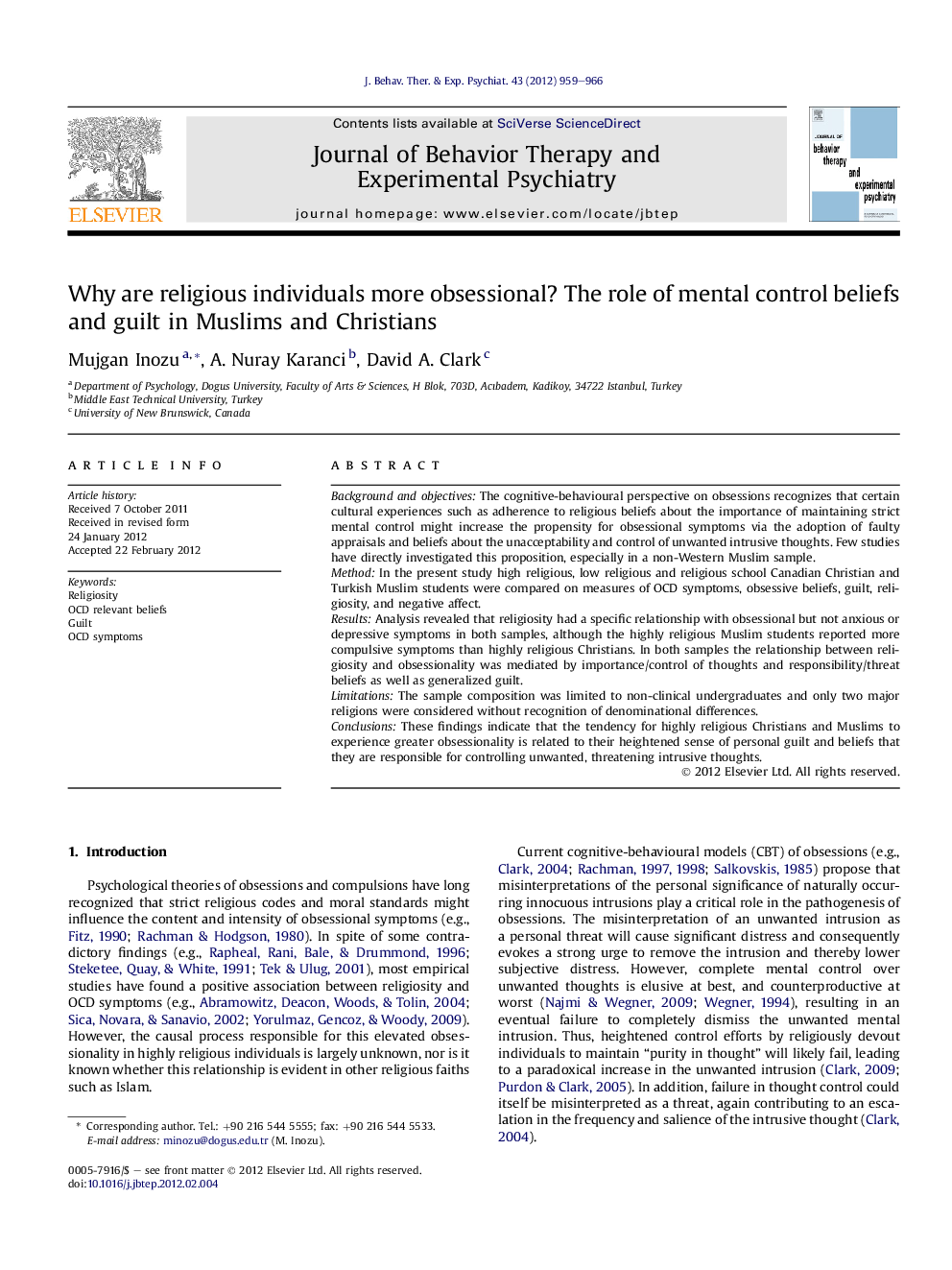| کد مقاله | کد نشریه | سال انتشار | مقاله انگلیسی | نسخه تمام متن |
|---|---|---|---|---|
| 910403 | 917456 | 2012 | 8 صفحه PDF | دانلود رایگان |

Background and objectivesThe cognitive-behavioural perspective on obsessions recognizes that certain cultural experiences such as adherence to religious beliefs about the importance of maintaining strict mental control might increase the propensity for obsessional symptoms via the adoption of faulty appraisals and beliefs about the unacceptability and control of unwanted intrusive thoughts. Few studies have directly investigated this proposition, especially in a non-Western Muslim sample.MethodIn the present study high religious, low religious and religious school Canadian Christian and Turkish Muslim students were compared on measures of OCD symptoms, obsessive beliefs, guilt, religiosity, and negative affect.ResultsAnalysis revealed that religiosity had a specific relationship with obsessional but not anxious or depressive symptoms in both samples, although the highly religious Muslim students reported more compulsive symptoms than highly religious Christians. In both samples the relationship between religiosity and obsessionality was mediated by importance/control of thoughts and responsibility/threat beliefs as well as generalized guilt.LimitationsThe sample composition was limited to non-clinical undergraduates and only two major religions were considered without recognition of denominational differences.ConclusionsThese findings indicate that the tendency for highly religious Christians and Muslims to experience greater obsessionality is related to their heightened sense of personal guilt and beliefs that they are responsible for controlling unwanted, threatening intrusive thoughts.
► The study provides new insights into the religion-OCD symptoms relationship by comparing Christian and Muslims samples.
► Results revealed that cultural variation can significantly influence the form and content of OC symptoms.
► Highly religious Muslim students reported higher compulsive symptoms than highly religious Christians.
► Religion appears to potentiate obsessional symptoms in large part because of the presence of intense guilt and OC beliefs.
Journal: Journal of Behavior Therapy and Experimental Psychiatry - Volume 43, Issue 3, September 2012, Pages 959–966